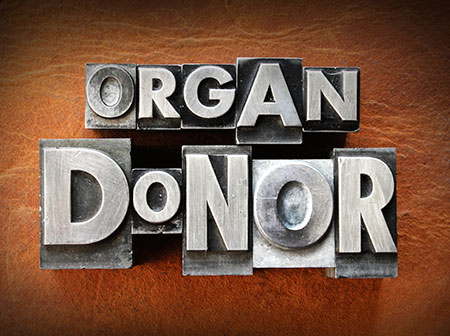Eye & Organ Donation
Organ donation is the gift of life. It not only gives someone a second chance, it provides comfort to family members in sorrow – knowing something good is coming out of a loss of life.
Why should I become a donor?

The “gift of life” saves lives. Two kidneys can free two people from a lifetime of dialysis. Corneas will restore sight so two people may once again be able to see. A pancreas will free a diabetic from daily insulin injections. If you decide to donate other organs/tissues (heart, liver, lungs, pancreas, skin, and bone), many more people will benefit from your priceless gift.
Who receives transplants?
According to the American Medical Association, the patient who receives a transplant is the patient who needs it the most and has the best chance of doing well with the available organ. The patient’s ability to pay or their social status in no way influences the selection process.
Who pays for transplants?
The transplant recipient’s health insurance or federal and state funds may cover the cost of the transplant.
Does age or medical history matter?
Neither age nor medical history should stop you from signing a donor card. The transplant team will decide at the time of the donation whether organs and tissues are usable.
What is brain death?
Organ donors must be brain dead. A brain dead person is unable to breathe without a machine and has no memory, consciousness, feeling, sight, touch or other sense.
What to discuss with your family
1. Discuss the basic thoughts and concerns about organ/tissue transplant.
2. Know the facts involving transplants so each family member can make an informed decision.
3. Explore fears and alleviate anxieties.
4. Allow each member to make his or her own
decision about being an organ donor.
5. Organ donation is a personal choice and no family member should be criticized about his or her decision. Family members may want to consult with others if they have questions about ethical/religious issues.
How to be prepared
This is a difficult time for the family. Organ donation is not always easy to talk about. This is why discussing organ donation with family members before a death is so important. If family members know how others feel, the decision is already made for them. It helps to know that in some way their loved one will go on living through others.
For further information about organ donation, please consult Iowa Donor Network toll free at (800) 831-4131 or www.iadn.org